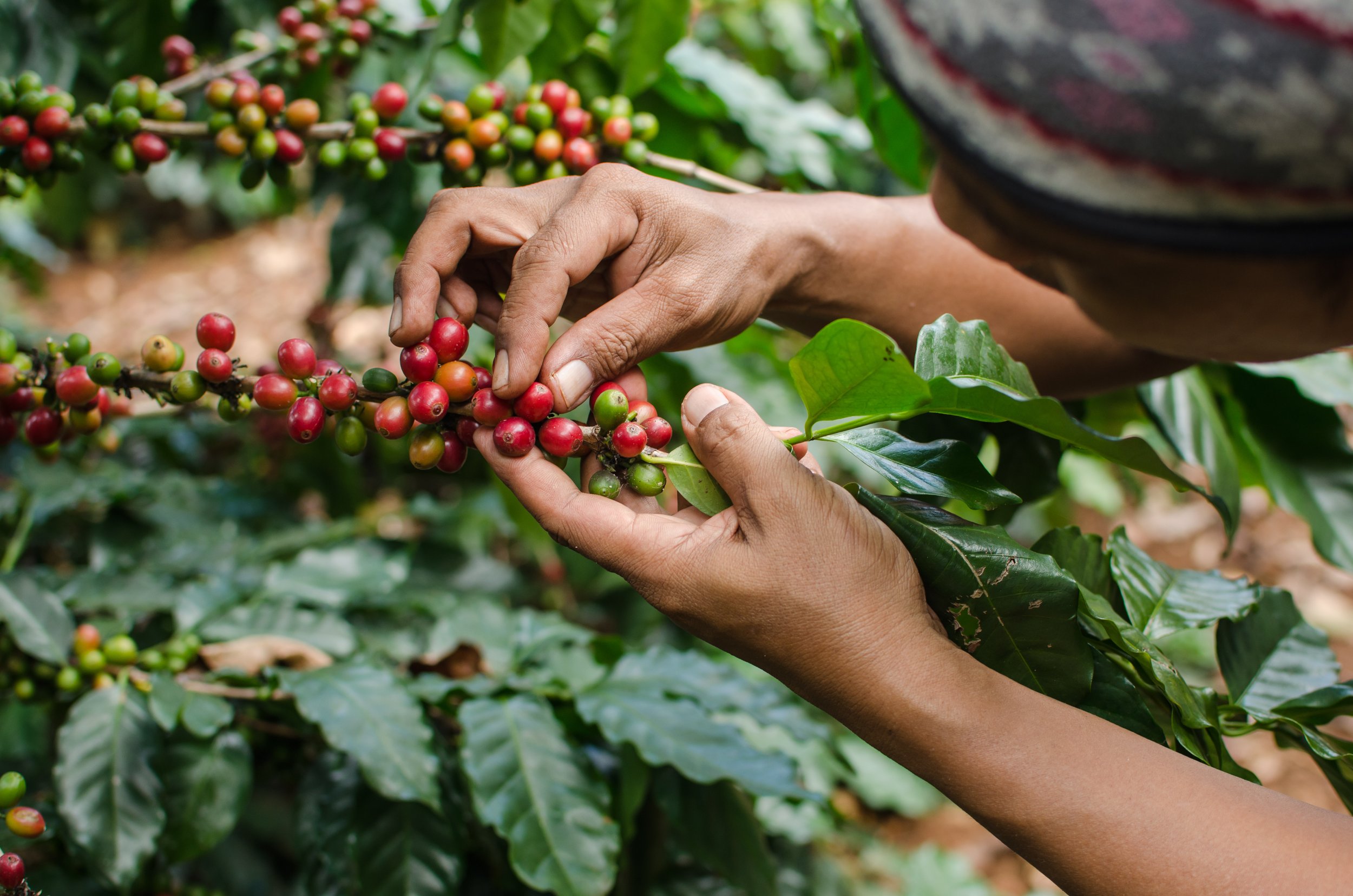What Does ‘Craft Chocolate’ Mean?
We are still, I believe, at the beginning of the craft chocolate movement - a movement towards understanding the value of chocolate as a ‘crafted’ item and a fine, artisan product. The term ‘craft’ in this context implies that love, care and time has been taken to create a masterpiece.
I have been asked this question many times over the last few years, but more so since becoming a chocolate maker myself. I had the term displayed on my stall at a recent vegan market and it drew a fair amount of attention from interested and conscientious shoppers.
We are still, I believe, at the beginning of the craft chocolate movement - a movement towards understanding the value of chocolate as a ‘crafted’ item and a fine, artisan product. The term ‘craft’ in this context implies that love, care and time has been taken to create a masterpiece.
There are a few definitions floating around the internet, but no official one. So I can answer this question in terms of what craft chocolate means to me in a few bullet points.
I believe that Craft Chocolate is:
made from bean-to-bar (or tree-to-bar). Craft chocolate is chocolate that has been made from scratch.
of the highest quality. The chocolate maker has spent time considering every ingredient that goes into the chocolate, and every process (roasting times, temperatures, which type of sugar to use etc).
always about the cacao. Craft chocolate makers celebrate the range and depth of the inherent flavour in the cacao!
Traceable and directly traded at the source. Craft chocolate makers buy their cocoa beans from a reputable supplier who has worked directly with the farmer and understands their processes, knows that they are using ethical practices, and pays substantially above the Fair Trade price.
The major difference between craft chocolate and industrial (mass market) chocolate is that industrial chocolate is all about producing consistency and volume, NOT flavour.
Although the term craft chocolate has been coined to describe the bean-to-bar movement, that’s not to say the chocolatiers using couverture (pre-made) chocolate are not producing a wonderful craft. In fact, their beautiful creations are usually far more crafty and artistic!
I see a divide emerging between craft chocolate makers and chocolatiers, with the latter being put down because of the chocolate they choose to work with. It’s easy to fall into the ‘my chocolate’s better than your chocolate’ trap when you are choosing to work in a way that prioritises farmers livelihoods and you just know that the majority of bulk produced chocolate is not slave free, and not outstanding flavour.
There are many chocolatiers who are choosing craft chocolate or ethically produced, directly-traded chocolate to work with, and in an ideal world this number will continue to grow. But we don’t live in an ideal world, and we are a long way from the customer being prepared to pay the extra cost that this higher quality product comes at.
For me, the most important thing we can all do is to educate. Educate ourselves about where our chocolate is coming from. Stop to think before you buy that cheap confectionery item about who is really paying the price if it costs so little. And educate our customers so that the word continues to be spread.
Anyhow, these are my ramblings on this subject which are really only just scratching the surface. To put this blog post together, I read and was informed by some excellent articles that you can find online, one from Cocoa Runners which goes into a lot of interesting detail and is definitely worth reading with a cup of tea and some chocolate. One from barandcocoa.com and another was on thechocolatelife.com. I’ve put the links to these articles in my bio.
Cacao and Coffee - the Commonalities
Cacao and coffee share many commonalities, not least their impressive flavour profiles! I have been doing some research into coffee after starting to work with some sustainably sourced coffee beans as an inclusion in my chocolate. The similarities in ethical sourcing practices between cacao and coffee got me wondering what else was similar, and I discovered that there were many things I didn’t know about coffee… much like at the beginning of my chocolate journey.
Cacao and coffee share many commonalities, not least their impressive flavour profiles! I have been doing some research into coffee after starting to work with some sustainably sourced coffee beans as an inclusion in my chocolate. The similarities in ethical sourcing practices between cacao and coffee got me wondering what else was similar, and I discovered that there were many things I didn’t know about coffee… much like at the beginning of my chocolate journey.
Here are a few of the commonalities that I have discovered in simple bullet points:
Both cocoa and coffee beans are the seeds of a fruit - the cocoa pod and the coffee cherry. The cocoa pod contains around 40-60 seeds, and the coffee cherry has two seeds per cherry.
Different varietals offer different flavour profiles and unique characteristics (size, appearance). For example, in cacao we have Trinitario, Criollo etc. In coffee there is Robusta, Arabica and so on.
Both cacao and coffee have to be manually harvested by hand, as they ripen on the tree at different times.
The impressive flavour profiles I mentioned… cacao has over 600 aromatic compounds, coffee over 1000!
The roasting process in fine chocolate and fine coffee has the aim of bringing out and enhancing the natural, inherent flavour profile of the beans.
‘Dark’ in chocolate refers to the amount of cocoa solids in the recipe, whereas in coffee ‘dark’ is referring to the length of the roast.
Both act as stimulants; cacao has theobromine and coffee has caffeine.
It is well known that chocolate and coffee are a match made in heaven, and when you consider the similarities between the two it’s easy to see why. So why is fine coffee so far ahead of chocolate when it comes to recognition as a fine product when it’s been consumed as a drink for over 4,000 years? Well, the answer to that one is long and complex and involves a deep dive into the history of chocolate. I’ll save that for another post!
Hello and welcome!
Hello and welcome to Exe Chocolate!
Hello, and welcome to Exe Chocolate. Thanks for stopping by! This is my first blog post (of many I hope), and it seems fitting to introduce myself and the concept behind my little business in more detail.
My name is Nicola Knight, I make chocolate bars in small batches from incredible cacao beans in my kitchen in Exeter.
I started my business in May 2022, solely because I could no longer justify buying multiple kilos of cocoa beans and turning it into delicious chocolate which I would then proceed to eat all by myself!
I started to dabble with chocolate making around 2017, at around the time I started my sensory chocolate tasting journey with the International Institute of Chocolate and Cacao Tasting. Since then I have certified as a Level 1 and 2 Chocolate Taster, and am currently studying for my Level 3. I have also taken lots of other courses in Cacao Evaluation and Sourcing and the bug for chocolate knowledge and information keeps growing!
I am a teacher, and I love to teach in schools about where chocolate comes from and how chocolate is made. If you’d like to know more about this side of my business you can visit my other website www.celebratecacao.co.uk.
I made many many batches of awful, inedible chocolate along the way. Chocolate making isn’t easy and the only way to really learn is to just do it, over and over again! Eventually I started to get it right, and from there I started to focus on finding the best origins that offer amazing flavour potential that I could develop and create my own range.
My products will always come from a place of outstanding flavour first and foremost. And of equal importance (although secondary in my sourcing decisions) comes the provenance of the beans. I only buy beans from a specialty cacao importer, so I know without question that they have been ethically sourced and traded with respect for the growers and their livelihoods.
I very much hope that you will enjoy my chocolate. Chocolate making is a real passion project for me, it gives me purpose, a sense of calm in my busy family life, and every sale gives me great joy!







